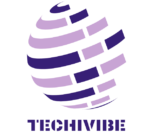I recently used Pchistory.Net to learn more about my CPU’s performance. The website provided easy-to-understand guides and tips on improving CPU speed and cooling. It helped me choose the right CPU for my needs and manage its health better.
Pchistory.Net CPU Work helps you understand how your CPU works inside your computer. It provides simple guides on improving CPU performance, cooling, and choosing the right CPU for your needs. The site also offers tips for maintaining your CPU and checking its health.
Stay tuned with us as we now talk about “Pchistory.Net CPU Work.” In the next section, we’ll dive into how the CPU functions, its importance, and how to optimize its performance for your system.
What Is A CPU, And Why Is It Important?
A CPU (Central Processing Unit) is the main part of a computer that processes instructions. It performs tasks like running programs, doing calculations, and managing data. The CPU is important because it controls everything in the system. Without it, the computer cannot work. It acts like the brain of the computer, ensuring that all parts function together smoothly.
How Does A CPU Work Inside A Computer?
A CPU works by processing instructions given by programs. First, it gets the instruction (fetch), then understands it (decode), and finally completes the task (execute). It handles everything from calculations to data management. The CPU works with other parts of the computer, like memory and storage, to make sure the system operates quickly and efficiently. This helps run programs and perform tasks smoothly.
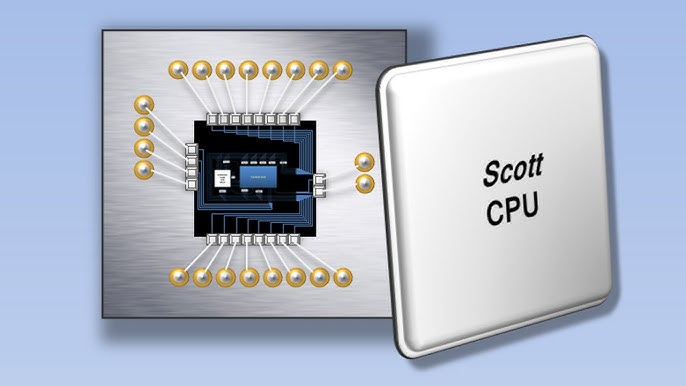
What Are The Main Parts Of A CPU?
Control Unit (CU):
The Control Unit directs how data moves in the CPU. It tells the computer’s memory, input, and output devices what to do, ensuring all tasks are completed in the right order.
Arithmetic Logic Unit (ALU):
The ALU handles all the calculations and logical decisions. It performs math operations like addition and subtraction and checks conditions like greater or smaller values.
Registers:
Registers are small storage spaces inside the CPU. They hold data and instructions temporarily while the CPU processes them, helping tasks run faster.
Cache Memory:
The cache is a quick memory in the CPU. It stores frequently used data to reduce the time needed to access it, making the system faster and more efficient.
Why Do CPUs Have Multiple Cores?
CPUs have multiple cores to handle many tasks at the same time. Each core works like a small processor, so more cores mean better performance. This helps with multitasking, like running games and apps together, without slowing down the computer.
What Is The CPU Cycle, And How Does It Process Tasks?
The CPU cycle is the process of fetching, decoding, and executing instructions. First, it gets instructions from memory, then understands what to do, and finally performs the task. This cycle repeats very fast, allowing the CPU to handle tasks efficiently.
How Can Pchistory.Net Help Users Understand CPU Work?
Pchistory.Net explains how CPUs work in simple terms. It provides guides and articles that help users learn about CPU parts, functions, and performance. The website is great for anyone who wants clear and easy-to-understand information about CPUs.
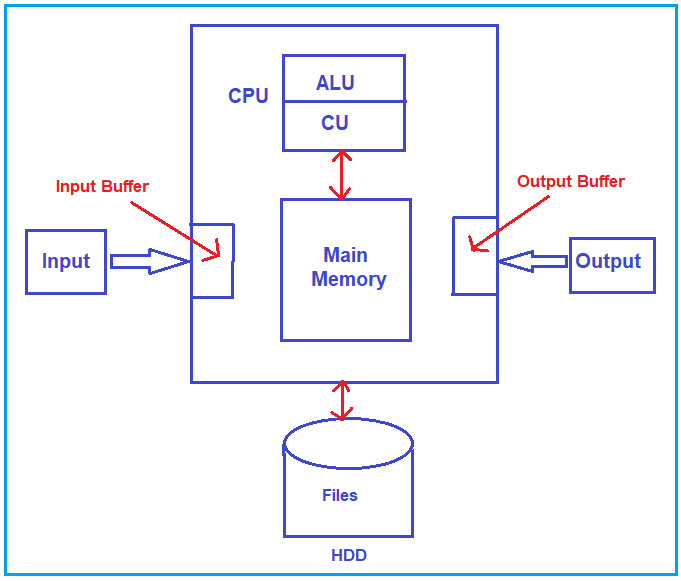
Does Pchistory.Net Provide CPU Troubleshooting Guides?
Yes, Pchistory.Net has troubleshooting guides for CPUs. These guides help users fix common problems, like overheating or performance issues. They include simple steps, so even beginners can follow them to solve their CPU-related issues.
What Are The Common Causes Of High CPU Usage?
Too Many Programs Running:
When many programs run at the same time, the CPU has to work harder to manage them all. This increases CPU usage and may slow down your computer.
Malware or Viruses:
Malware or viruses can run hidden processes that take up CPU power. These unwanted programs make your computer slow and overuse the CPU.
Heavy Applications or Games:
Programs like video editors or modern games need a lot of processing power. They make the CPU work more, leading to higher usage.
Outdated Software or Drivers:
Old software or drivers might not work properly with the CPU. This can cause errors, making the CPU work harder than it should.
How Does Pchistory.Net Help Monitor CPU Performance?
Pchistory.Net provides tools and guides to check how your CPU is performing. It explains CPU usage, temperature, and speed in simple ways so anyone can understand. This helps users identify problems, improve performance, and keep the CPU healthy for a long time.
Can Pchistory.Net Help Users Choose The Right CPU?
Yes, Pchistory.Net offers advice and comparisons of CPUs for different needs. Whether for gaming, office work, or basic use, it explains features like cores, speed, and compatibility. This helps users pick a CPU that suits their tasks and budget easily.
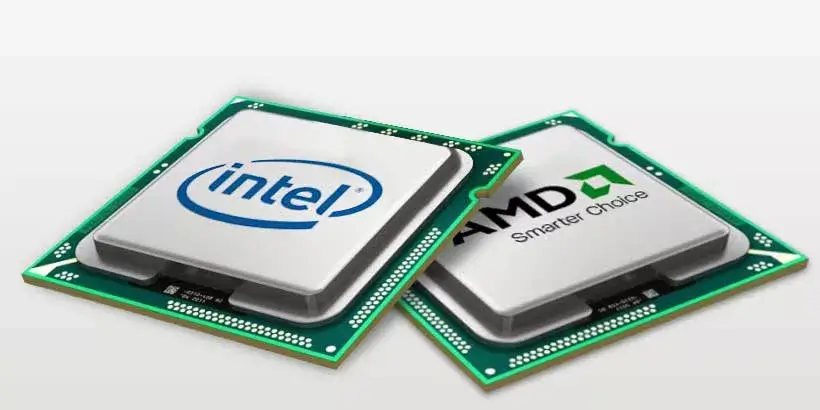
What Does CPU Frequency Do?
CPU frequency tells how fast the CPU processes tasks. A higher frequency means the CPU can complete tasks faster. It’s measured in GHz (gigahertz). For everyday use, higher frequencies make things like apps open quickly and improve performance, especially in heavy tasks like gaming or video editing.
How Can I See My CPU Details?
You can see your CPU details by checking the “System Information” on your computer. On Windows, right-click on “This PC,” choose “Properties,” and look for CPU details. On smartphones, go to settings and find “About Phone” or “Hardware Information.”
How Does A Smartphone CPU Work?
A smartphone CPU works like a computer CPU but is smaller and uses less power. It handles tasks like running apps, sending messages, and playing videos. Smartphone CPUs are optimized for speed and energy efficiency to keep the phone fast and save battery life.
Does Pchistory.Net Explain How To Check CPU Usage In Windows?
Yes, Pchistory.Net provides simple guides to check CPU usage in Windows. It explains how to use Task Manager, where you can see how much of the CPU is being used and which programs are using it the most.
Can Pchistory.Net Help With Fixing CPU Overheating Problems?
Yes, Pchistory.Net offers tips for fixing overheating CPUs. It discusses cleaning dust from your PC, improving airflow, and using better cooling systems. These tips can help your CPU stay cool and improve its performance.
Does Pchistory.Net Provide Advice On Overclocking A CPU?
Yes, Pchistory.Net shares advice on overclocking CPUs safely. It explains the benefits of overclocking for better performance and the risks, like overheating. The site also guides users on how to monitor CPU temperatures while overclocking.
How Does Pchistory.Net Explain The Importance Of CPU Cores?
Pchistory.Net explains that more CPU cores allow your computer to do more tasks at the same time. Cores are like workers in a factory. More workers can handle more tasks, making the computer faster, especially for multitasking and demanding applications.
Can Pchistory.Net Help In Identifying A Faulty CPU?
Yes, Pchistory.Net provides tips to spot a faulty CPU. It explains common signs like frequent crashes, slow performance, or overheating. The site also suggests diagnostic tools and methods to test CPU health and performance.
Does Pchistory.Net Guide On Selecting A CPU For Everyday Tasks?
Yes, Pchistory.Net offers advice on choosing a CPU for daily use. It explains the importance of a balance between performance and price, suggesting CPUs with good speeds and enough cores for browsing, office work, and light gaming.
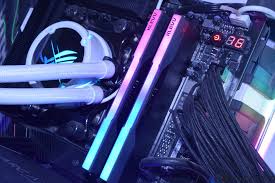
Frequently Ask Questions:
1. Can Pchistory.Net Explain How To Improve CPU Speed?
Yes, Pchistory.Net shares simple tips like closing unused programs, updating software, and keeping the CPU clean to help improve its speed effectively.
2. Does Pchistory.Net Provide Tips For CPU Cooling?
Yes, it offers tips such as cleaning dust, improving airflow, and using a quality cooling system to maintain low CPU temperatures.
3. How Does Pchistory.Net Help With Choosing A CPU For Gaming?
Pchistory.Net provides guides comparing CPUs, explaining specifications, and recommending options based on gaming needs and budgets.
4. Can Pchistory.Net Explain How To Check CPU Temperature?
Yes, it explains how to use free tools or BIOS settings to easily monitor your CPU temperature.
5. Does Pchistory.Net Cover The Difference Between CPUs And GPUs?
Yes, it explains that CPUs handle general tasks, while GPUs focus on graphics and video performance.
6. Can Pchistory.Net Guide On Upgrading An Old CPU?
Yes, it provides step-by-step instructions and tips on selecting a compatible CPU for your system.
7. How Does Pchistory.Net Simplify CPU Terms For Beginners?
It breaks down technical terms into easy words, so beginners can understand CPU functions and features better.
8. Does Pchistory.Net Explain How CPU Cache Works?
Yes, it explains how the CPU cache stores small, frequently-used data to speed up tasks and improve performance.
9. Can Pchistory.Net Help In Understanding CPU Benchmarks?
Yes, it explains benchmarks as tests showing CPU performance, helping users compare and choose the best option.
10. Does Pchistory.Net Offer Advice For Maintaining CPU Health?
Yes, it shares advice like regular cleaning, using cooling systems, and avoiding overloading the CPU to keep it healthy.
Conclusion:
In conclusion, understanding how your CPU works and how to keep it running smoothly is important for your computer’s performance. Pchistory.Net offers simple guides and tips to help you manage your CPU better. From improving speed to cooling and maintenance, the website provides useful advice for both beginners and experienced users. Stay informed to get the best performance from your CPU.
Related Posts:
- Photolibraryd High CPU – Solve CPU Usage Now!
- Corespotlightd High CPU – A Complete Guide _2024!
- CPU Vdd Soc Current Optimization – A Complete Guide of 2024!
- Is 50 Degrees Celsius Hot For A CPU – Keep CPU Safe Today!
- Can I Use 70 Alcohol To Clean CPU – Clean Your CPU Now!
